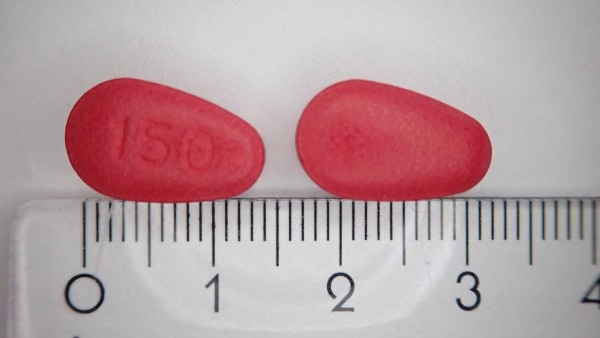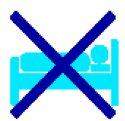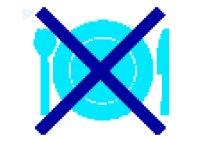
ABRION 150 mg FILM-COATED TABLETS


How to use ABRION 150 mg FILM-COATED TABLETS
Translated with AI
This page provides general information and does not replace a doctor’s consultation. Always consult a doctor before taking any medication. Seek urgent medical care if symptoms are severe.
Show originalContents of the leaflet
Introduction
PACKAGE LEAFLET: INFORMATION FOR THE USER
ABRION 150 mg film-coated tablets EFG
Ibandronic acid

Contents of the package leaflet:
- What is ABRION and what is it used for
- Before taking ABRION
- How to take ABRION
- Possible side effects
- Storage of ABRION
- Additional information
1. What is ABRION and what is it used for
ABRION belongs to a group of medicines called bisphosphonates that contain ibandronic acid. It does not contain hormones.
ABRION can reverse bone loss as it prevents further bone loss and increases bone mass in most women who take it, even if they are not able to see or appreciate the difference. ABRION can help reduce the number of bone fractures. This reduction has been demonstrated in vertebral fractures but not in hip fractures.
You have been prescribed ABRION to treat your osteoporosis because you are at high risk of suffering fractures.Osteoporosis is a thinning and weakening of the bones, which is common among women after menopause. During menopause, the ovaries stop producing the female hormone — estrogen — that helps maintain skeletal health.
The earlier a woman reaches menopause, the higher the risk of suffering fractures due to osteoporosis. Other factors that increase the risk of fractures are:
- inadequate intake of calcium and vitamin D in the diet
- smoking or excessive alcohol consumption
- little walking or other weight-bearing exercises
- family history of osteoporosis
Many people with osteoporosis do not experience symptoms. If you do not have symptoms, it may be difficult for you to know if you have the condition. However, osteoporosis increases the likelihood of bone fracture in the event of a fall or injury. Any bone fracture that occurs after the age of 50 may be a sign of osteoporosis. Osteoporosis can also cause back pain, loss of height, and hunchback.
ABRION prevents bone loss due to osteoporosis and helps rebuild bone. Therefore, ABRION reduces the likelihood of fractures.
Healthy lifestyle habitsalso facilitate the beneficial effects of treatment. These include a balanced diet rich in calcium and vitamin D; walking or any other weight-bearing exercise; not smoking and moderate alcohol consumption.
2. Before taking ABRION
Do not take ABRION:
- If you are allergic (hypersensitive) to ibandronic acid or any of the other components of ABRION.
- If you have certain esophageal problems (the esophagus is the tube that connects your mouth to your stomach), such as narrowing or difficulty swallowing.
- If you cannot remain upright, either standing or sitting, for at least one hour (60 minutes).
- If you have or have had low calcium levels in the blood. Please consult your doctor.
Do not give ABRION to children or adolescents.
Be careful with ABRION:
Some people require special care during treatment with ABRION.
Consult your doctor:
- If you have any mineral metabolism disorder (e.g., vitamin D deficiency).
- If you have any kidney problems.
- If you have any swallowing or digestive problems.
- If you are undergoing dental treatment or are scheduled for dental surgery, inform your dentist that you are being treated with ABRION.
Irritation, inflammation, or ulceration of the esophagus (the esophagus is the tube that connects your mouth to your stomach) may occur, often with symptoms of severe chest pain, severe pain after swallowing food or drink, severe nausea, or vomiting, especially if patients do not drink a full glass of water and/or if they lie down before one hour has passed after taking ABRION. If you develop these symptoms, stop taking ABRION and inform your doctor immediately.
A rare adverse reaction called osteonecrosis of the jaw (ONJ) (bone damage in the jaw) has been reported during post-marketing experience in patients treated with ABRION for osteoporosis. ONJ can also occur after treatment is discontinued.
It is essential to try to prevent the development of ONJ, as it is a painful condition that can be difficult to treat. To reduce the risk of developing osteonecrosis of the jaw, certain precautions must be taken.
Before receiving treatment, inform your doctor/nurse (healthcare professional) if:
- you have dental problems or teeth, such as poor dental health, gum disease, or a planned tooth extraction
- you do not receive routine dental care or if you have not had a dental checkup for a long time
- you are a smoker (as this can increase the risk of dental problems)
- you have been previously treated with a bisphosphonate (used to treat or prevent bone disorders)
- you are taking medications called corticosteroids (such as prednisolone or dexamethasone)
- you have cancer
Your doctor may ask you to undergo a dental examination before starting treatment with ABRION.
While you are being treated, you must maintain good oral hygiene (including regular toothbrushing) and undergo routine dental checkups. If you wear dentures, you must ensure they fit properly. If you are undergoing dental treatment or are scheduled for dental surgery (e.g., tooth extraction), inform your doctor about your dental treatment and inform your dentist that you are being treated with ABRION.
Contact your doctor and dentist immediately if you experience any problems in your mouth or teeth, such as tooth loss, pain, or swelling, or difficulty healing ulcers or discharge, as these may be signs of osteonecrosis of the jaw.
Use of other medicines:
Inform your doctor or pharmacist if you are using or have recently used other medicines, including those obtained without a prescription. Especially:
- Supplements containing calcium, magnesium, iron, or aluminum, as they may affect the effects of ABRION.
- Aspirin and other non-steroidal anti-inflammatory drugs (NSAIDs)(such as ibuprofen, diclofenac sodium, and naproxen) that can irritate the stomach and intestines, just like bisphosphonates (such as ABRION 150). Therefore, be very careful when taking pain relievers or anti-inflammatory drugs at the same time as ABRION.
After taking the monthly ABRION tablet, wait 1 hour before taking any other medicine, including antacids, calcium supplements, and vitamins.
Taking ABRION with food and drinks:
Do not take ABRION with food.ABRION loses effectiveness if taken with food.
You can drink tap water but not other liquids(see section 3 HOW TO TAKE ABRION).
Pregnancy and breastfeeding
Do not take ABRION if you are pregnant or breastfeeding. If you are breastfeeding, you may need to stop breastfeeding to take ABRION.
Driving and using machines
It is very unlikely that ABRION will affect your ability to drive and use machines.
Important information about some of the components of ABRION
ABRION contains lactose. If your doctor has told you that you have an intolerance to certain sugars, contact them before taking this medicine.
3. How to take ABRION
Follow the administration instructions for ABRION exactly as indicated by your doctor. Consult your doctor or pharmacist if you have any doubts.
The usual dose of ABRION is one tablet per month.
How to take the monthly tablet
It is essential that you follow these instructions carefully. They are designed to ensure that ABRION reaches the stomach quickly and causes less irritation.
- Take one ABRION tablet once a month.
- Choose a day of the month that is easy for you to remember. You can choose the same date (e.g., the first day of each month) or always the same day (e.g., the first Sunday of each month). Choose what best fits your routine.
- Take the ABRION tablet after a minimum of 6 hours of not eating or drinking (except water). You can only drink water during this period.
- Take the ABRION tablet
- as soon as you get up, and
- before breakfast or drinking liquids (on an empty stomach)
- Swallow the tablet with a glass of tap water (at least 180 ml). Do not take the tablet with mineral water, fruit juice, or other drinks.
- Swallow the tablet whole
Do not chew, crush, or dissolve it in your mouth.
- During the next hour (60 minutes) after taking the tablet
- do not lie down; if you do not remain upright (standing or sitting), part of the medicine may return to the esophagus

- do not eat anything

- do not drink anything (except tap water, if needed)
- do not take any other medicine
- After waiting 1 hour, you can have breakfast and your first drink of the day. Once you have eaten, you can lie down and take other medicines you need.
Do not take this medicine at bedtime or before getting up.
Continuation of treatment with ABRION
It is essential that you take ABRION every month, until your doctor tells you to stop. ABRION is effective in treating osteoporosis only while you are taking this medicine.
If you take more ABRION than you should:
If you have taken an extra tablet by mistake, drink a full glass of milk and inform your doctor immediately.
Do not induce vomiting or lie downbecause it could irritate the esophagus.
In case of overdose or accidental ingestion, call the Toxicology Information Service. Phone: 91 562 04 20, indicating the medicine and the amount taken.
If you forget to take ABRION:
If you forget to take the tablet on the morning of the day you have chosen, do not take the tablet later. Instead, consult your calendar to see when your next dose is due:
If your next dose is within1 to7 days...
Wait until your next scheduled dose and take it as usual, then continue taking one tablet per month according to the days marked on your calendar.
If your next dose is more than 7 days away...
Take a tablet the next morning after the day you remember you forgot the dose, then continue taking one tablet per month according to the days marked on your calendar.
Never take two ABRION tablets within the same week.
4. Possible side effects
Like all medicines, ABRION can have side effects, although not everyone will experience them.
These side effects may occur with certain frequencies, which are defined as follows: - very common: affects more than 1 in 10 people
- common: affects between 1 and 10 in 100 people
- uncommon: affects between 1 and 10 in 1,000 people
- rare: affects between 1 and 10 in 10,000 people
- very rare: affects less than 1 in 10,000 people
- unknown: frequency cannot be estimated from available data.
Common side effectsinclude heartburn (burning sensation rising from the stomach to the mouth), indigestion, diarrhea, stomach pain, and nausea.
ABRION can also irritate the esophagus, although this reaction can usually be avoided if the dose is taken according to the package leaflet. If you experience symptoms such as severe chest pain, severe pain after swallowing food or drink, nausea, or vomiting, inform your doctor immediately.
Other common side effects are rash, muscle cramps, muscle and joint pain, and headache.
They also include flu-like symptoms (such as pain, feeling unwell, fatigue) that are usually mild, short-lived, and disappear soon after taking the first dose. It is likely that you can tolerate them and continue treatment with ABRION. However, talk to your doctor if the effects worsen or last a long time.
Uncommon side effects are symptoms of low calcium levels in the blood (hypocalcemia), including muscle cramps or spasms and/or tingling sensation in the fingers or around the mouth, dizziness, back pain, and flatulence.
Rare side effects that may occur are swelling and itching of the face, lips, and mouth.
Atypical fractures of the femur (thigh bone) can occur rarely, especially in patients on long-term treatment for osteoporosis. Inform your doctor if you notice pain, weakness, or discomfort in the thigh, hip, or groin, as these may be early symptoms of a possible femur fracture.
Very rare(may affect up to 1 in 10,000 people).
Consult your doctor if you have ear pain, discharge from the ear, or an ear infection. These could be symptoms of damage to the bones of the ear.
If you think any of the side effects you are experiencing is serious or if you notice any side effect not mentioned in this package leaflet, inform your doctor or pharmacist.
5. Storage of ABRION
Keep out of the reach and sight of children.
No special storage conditions are required.
Do not use ABRION after the expiration date stated on the packaging after "EXP:". The expiration date is the last day of the month indicated.
Medicines should not be disposed of via wastewater or household waste. Ask your pharmacist how to dispose of packaging and medicines you no longer need. This will help protect the environment.
6. Additional information
Composition of ABRION:
-The active ingredient is ibandronic acid. Each tablet contains 150 mg of ibandronic acid.
- The other components are:
tablet core: Povidone, microcrystalline cellulose (E460), cornstarch, crospovidone (E1202), colloidal silicon dioxide, dibehenate of glycerol
tablet coating: Titanium dioxide (E171), lactose monohydrate, hypromellose (E464)/macrogol/polyethylene glycol 4000
Appearance and packaging of the product:
The film-coated tablets are white or off-white, round, and biconvex.
ABRION 150 mg tablets are presented in "aluminum-aluminum" blister packs (PA/ALL/PVC-Aluminum), containing one or three units.
Marketing authorization holder and manufacturer:
Marketing authorization holder
ESPECIALIDADES FARMACÉUTICAS CENTRUM, S.A.
C/Sagitario 14
03006 Alicante (Spain)
Phone: 965 28 67 00
Fax: 965 28 64 34
Manufacturer
Pharmathen, S.A.
6, Dervenakion Str – GR-16351 (Pallini Attikis), Greece
or
Pharmathen International, S.A.
Shapes Industrial Park, Block 5 – 69300 (Rodopi), Greece
Date of last revision of this package leaflet: April 2022.
- Country of registration
- Average pharmacy price13 EUR
- Active substance
- Prescription requiredYes
- Manufacturer
- This information is for reference only and does not constitute medical advice. Always consult a doctor before taking any medication. Oladoctor is not responsible for medical decisions based on this content.
- Alternatives to ABRION 150 mg FILM-COATED TABLETSDosage form: INJECTABLE PERFUSION, 2 mgActive substance: ibandronic acidManufacturer: Accord Healthcare S.L.U.Prescription requiredDosage form: INJECTABLE PERFUSION, 6 mgActive substance: ibandronic acidManufacturer: Accord Healthcare S.L.U.Prescription requiredDosage form: TABLET, 150 mgActive substance: ibandronic acidManufacturer: Laboratorios Alter S.A.Prescription required
Online doctors for ABRION 150 mg FILM-COATED TABLETS
Discuss questions about ABRION 150 mg FILM-COATED TABLETS, including use, safety considerations and prescription review, subject to medical assessment and local regulations.
Frequently Asked Questions












